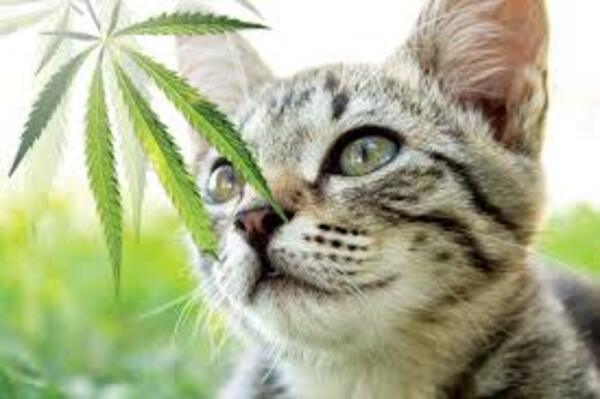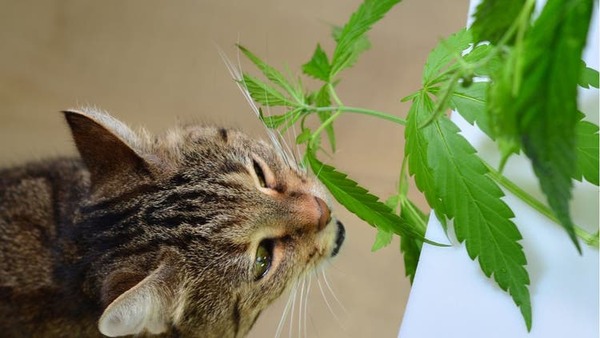As marijuana becomes more widely accepted and legalized in various regions, pet owners often wonder about its effects on animals. The question arises: Is marijuana toxic to animals? In this article, we’ll explore the potential dangers of marijuana for pets, the symptoms of exposure, and what to do if your furry friend accidentally ingests it.

Marijuana contains various compounds, with the most notable being THC (tetrahydrocannabinol) and CBD (cannabidiol). THC is the psychoactive component that produces the "high" associated with marijuana use, while CBD is non-psychoactive and is often used for its therapeutic effects.
Animals, particularly dogs and cats, metabolize THC differently than humans do. This difference in metabolism can lead to more severe reactions in pets. Animals have more cannabinoid receptors in their brains, which can make them more sensitive to the effects of THC.
If a pet is exposed to marijuana, they may show a range of symptoms. Here are some common signs of marijuana toxicity:
Lethargy: A pet may appear unusually tired or unresponsive.
Coordination Issues: Pets may have difficulty walking or standing, appearing wobbly or unsteady.
Dilated Pupils: The pupils may appear larger than normal.
Excessive Salivation: Increased drooling may occur.
Vomiting or Diarrhea: Gastrointestinal upset can be a sign of toxicity.
Tremors or Seizures: In severe cases, pets may experience muscle tremors or seizures.
If you suspect that your pet has ingested marijuana, it's essential to act quickly:
Stay Calm: Keeping a level head will help you make better decisions.
Assess Symptoms: Observe your pet for any unusual behavior or physical symptoms.
Contact a Veterinarian: Reach out to your vet or an emergency animal clinic for advice. Be honest about what your pet may have consumed.
Veterinarians may recommend several treatment options depending on the severity of the symptoms:
Inducing Vomiting: If the ingestion was recent, the vet may induce vomiting to remove the substance from your pet's system.
Activated Charcoal: This can help absorb any remaining THC in the gastrointestinal tract.
IV Fluids: If your pet is dehydrated or unable to drink, they may receive fluids intravenously.
Supportive Care: Monitoring and supportive care may be needed for pets showing severe symptoms.

To keep your pets safe, consider the following tips:
Store Marijuana Safely: Keep marijuana products out of reach of pets, just like you would with any other toxic substances.
Educate Guests: Inform friends and family about the potential dangers of marijuana for pets.
Be Cautious with Edibles: Many marijuana edibles are made with ingredients that are also toxic to pets, such as chocolate or xylitol.
In summary, marijuana can indeed be toxic to animals, particularly due to its THC content. If you suspect your pet has ingested marijuana, it’s crucial to seek veterinary help immediately. By being aware of the dangers and taking preventive measures, you can ensure your furry friends stay safe and healthy. Always prioritize your pet's well-being and keep potentially harmful substances out of their reach.
As pet owners, it's important to be aware of the plants that can be harmful to our furry friends. Many common household and garden plants contain toxins that can lead to serious health issues for animals. Here’s a detailed look at some plants that are toxic to animals, including symptoms of poisoning and what to do if your pet is exposed.
Toxic Parts: Leaves and gel.
Symptoms: Vomiting, diarrhea, lethargy, and changes in urine color.
Notes: While it’s often used for skin treatments, ingestion can be harmful to pets.
Toxic Parts: Leaves and sap.
Symptoms: Mild gastrointestinal upset, drooling, and skin irritation.
Notes: Often associated with Christmas, they can cause discomfort but are rarely life-threatening.
Toxic Parts: Leaves and stems.
Symptoms: Oral irritation, drooling, vomiting, and difficulty swallowing.
Notes: Common houseplant; the calcium oxalate crystals cause the irritation.
Toxic Parts: All parts.
Symptoms: Swelling of the mouth and throat, difficulty breathing, and vomiting.
Notes: Known for its beautiful foliage but can be very harmful if ingested.
Toxic Parts: All parts, especially harmful to cats.
Symptoms: Vomiting, loss of appetite, and kidney failure.
Notes: Even small amounts can be extremely dangerous to cats.
Toxic Parts: Seeds and leaves.
Symptoms: Vomiting, diarrhea, seizures, and liver failure.
Notes: Highly toxic; ingestion of even a small amount can be fatal.
Toxic Parts: All parts.
Symptoms: Vomiting, diarrhea, drooling, and heart problems.
Notes: Even small amounts can cause serious health issues.
Toxic Parts: All parts.
Symptoms: Vomiting, decreased heart rate, and death.
Notes: Extremely toxic; ingestion can be fatal.
Toxic Parts: All parts.
Symptoms: Vomiting, diarrhea, heart arrhythmias, and death.
Notes: Contains digitalis, which affects heart function.
Toxic Parts: Leaves and seeds.
Symptoms: Tremors, difficulty breathing, and death.
Notes: Very toxic; ingestion of even small amounts can be lethal.
The symptoms of plant toxicity can vary depending on the type of plant and the amount ingested. Common signs include:
Vomiting
Diarrhea
Drooling
Lethargy
Difficulty breathing
Tremors or seizures
If you suspect that your pet has ingested a toxic plant, take the following steps:
Stay Calm: Keeping a clear head will help you manage the situation.
Identify the Plant: Knowing the exact plant can help the veterinarian provide the best care.
Contact Your Veterinarian: Call your vet or an emergency animal clinic immediately for advice.
Provide Information: Be ready to inform the vet about your pet's symptoms and the plant they may have ingested.
To prevent your pets from ingesting toxic plants:
Choose Pet-Friendly Plants: Research and select plants that are safe for pets.
Keep Plants Out of Reach: Place potentially toxic plants high up or in rooms that pets cannot access.
Educate Family and Friends: Inform others about the dangers of certain plants.
Being aware of the plants that are toxic to animals can help you create a safer environment for your pets. If you suspect your pet has ingested a harmful plant, seek veterinary assistance immediately. By taking preventive measures and being informed, you can ensure your furry companions remain healthy and safe.
animal tags: animals
We created this article in conjunction with AI technology, then made sure it was fact-checked and edited by a Animals Top editor.